Gastric sleeve, an increasingly favored bariatric operation, has garnered substantial attention in recent times owing to its efficacy in assisting individuals in attaining long-lasting weight reduction objectives. This surgical intervention not only limits the consumable food volume but also suppresses the synthesis of the appetite-stimulating hormone ghrelin, ultimately leading to diminished hunger and curtailed yearnings for detrimental victuals.
Although gastric sleeve yields notable weight shedding, it is imperative to comprehend that it is not a rapid panacea. Patients must pledge to an enduring transformation in their lifestyle, encompassing wholesome dietary practices and consistent physical exertion, to preserve their weight loss achievements. Nevertheless, for those grappling with corpulence and related health maladies for prolonged durations, gastric sleeve can bestow a rejuvenated zest for existence and ameliorate overall health and wellness.
What is Gastric Sleeve?
Gastric sleeve is a surgical undertaking that necessitates excising a substantial segment of the stomach to forge a diminutive, sleeve-like gastric structure. This new configuration restricts the quantity of ingested nourishment in a single instance, culminating in weight reduction. This technique is typically executed on individuals afflicted with morbid obesity who have been unsuccessful in shedding pounds through conventional means like dieting and physical activity.
Gastric sleeve can profoundly influence a person’s health, mitigating the perils of obesity-induced ailments such as hypertension, type 2 diabetes, and sleep apnea. Additionally, it can augment overall life quality by enhancing mobility and alleviating joint discomfort. However, akin to any surgical procedure, there exist risks and potential complications, including infection, hemorrhage, and thrombosis. Patients necessitate comprehensive evaluations by healthcare experts to ascertain if gastric sleeve is their optimal choice and should meticulously weigh the risks and advantages prior to undertaking the procedure.
How is Gastric Sleeve Performed?
Gastric sleeve is predominantly conducted laparoscopically, entailing diminutive incisions in the abdominal region to insert surgical apparatuses and a camera to execute the operation. The surgeon proceeds to excise a substantial portion of the stomach, retaining a slender tubular gastric structure. The residual stomach is affixed with staples to avert any leakage, and the incisions are sealed with sutures or staples.
The surgery usually spans between one to two hours, and the majority of patients can depart from the hospital within a two to three-day window. In the days succeeding the operation, patients must adhere to a stringent liquid nourishment regimen to facilitate proper stomach recuperation. Gradually, they will transition to solid sustenance but must maintain a salubrious eating plan and partake in regular corporeal activities to attain and sustain their weight loss objectives. Patients are also required to attend periodic follow-up consultations with their healthcare team to supervise their progress and ensure they maintain a healthy weight.
How much does Gastric Sleeve Cost in Izmir, Turkey?
A frequent technique used to aid those battling with obesity for losing weight is gastric sleeve surgery. Do your homework and learn about the procedure and potential costs if you’re thinking about having this surgery in Izmir, Turkey. While we are unable to give exact costs, we advise getting in touch with a respected clinic or hospital in the region to learn more about your alternatives.
To guarantee the best results, it’s critical to select a clinic or hospital with experience and knowledge in performing gastric sleeve surgery. For offers and rates that are affordable, please contact our hospital. We are committed to offering top-notch services and our team of experts will be pleased to address any inquiries you may have.
Before & After
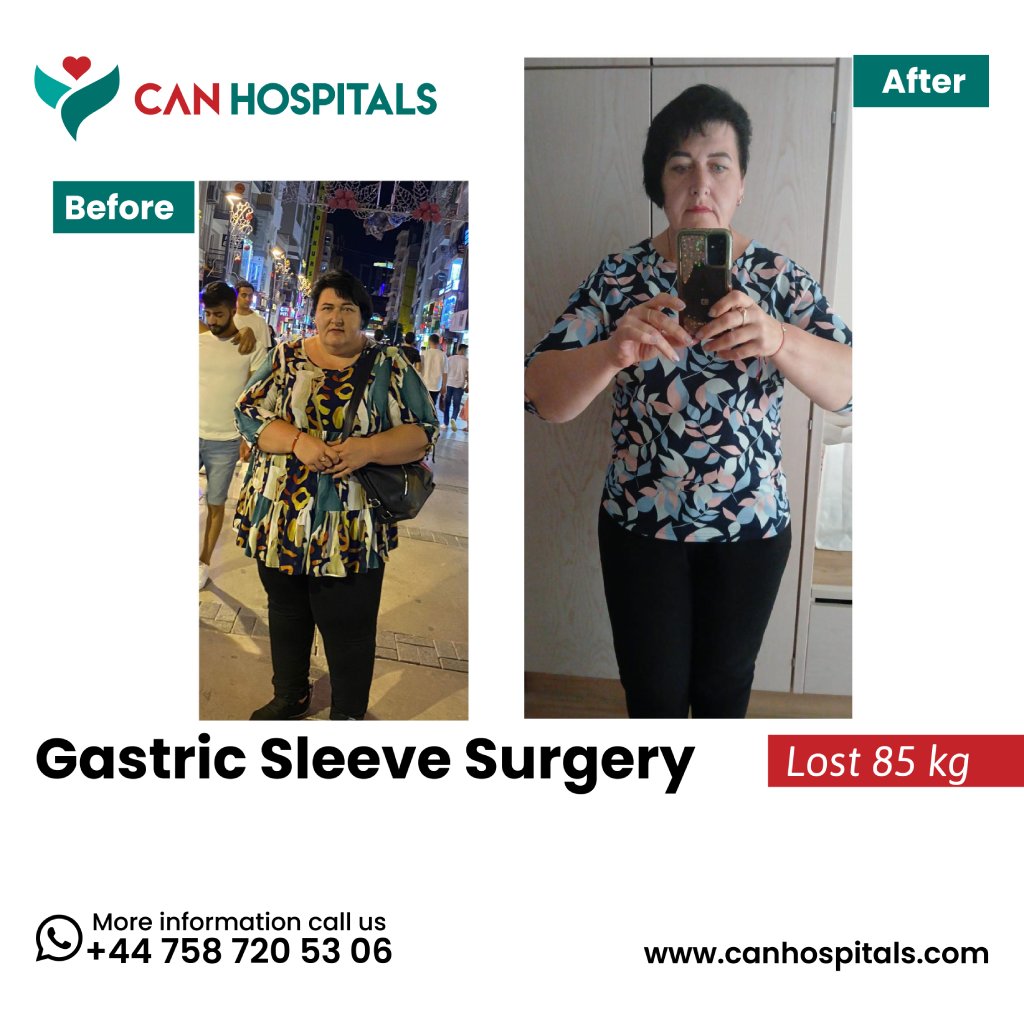
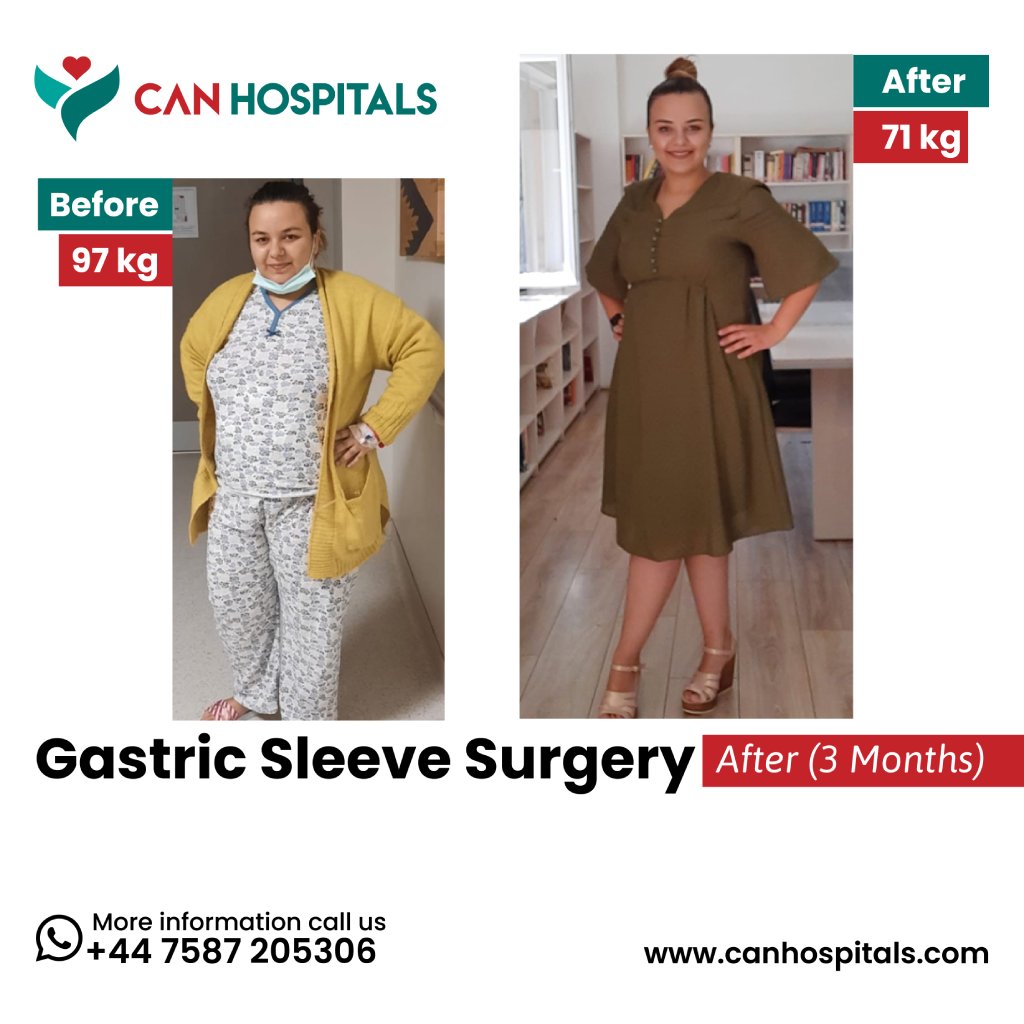

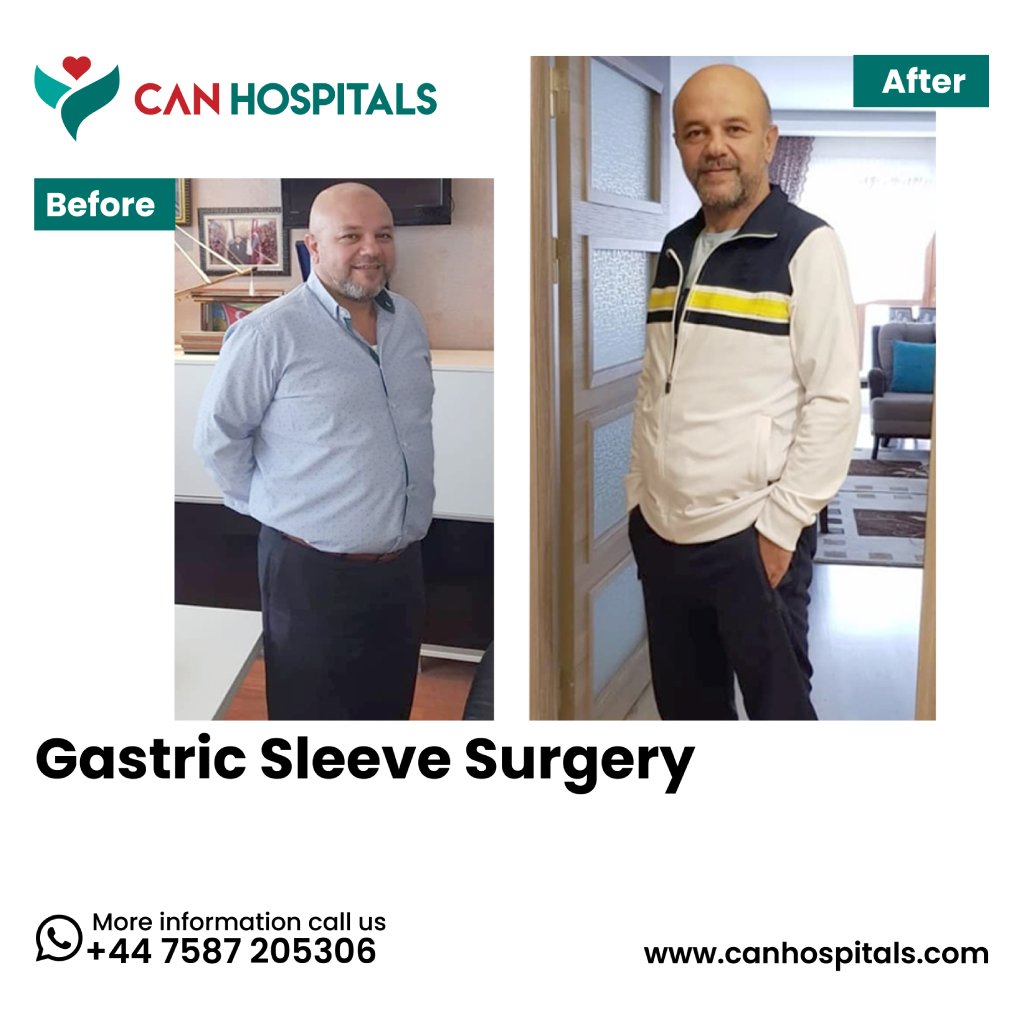
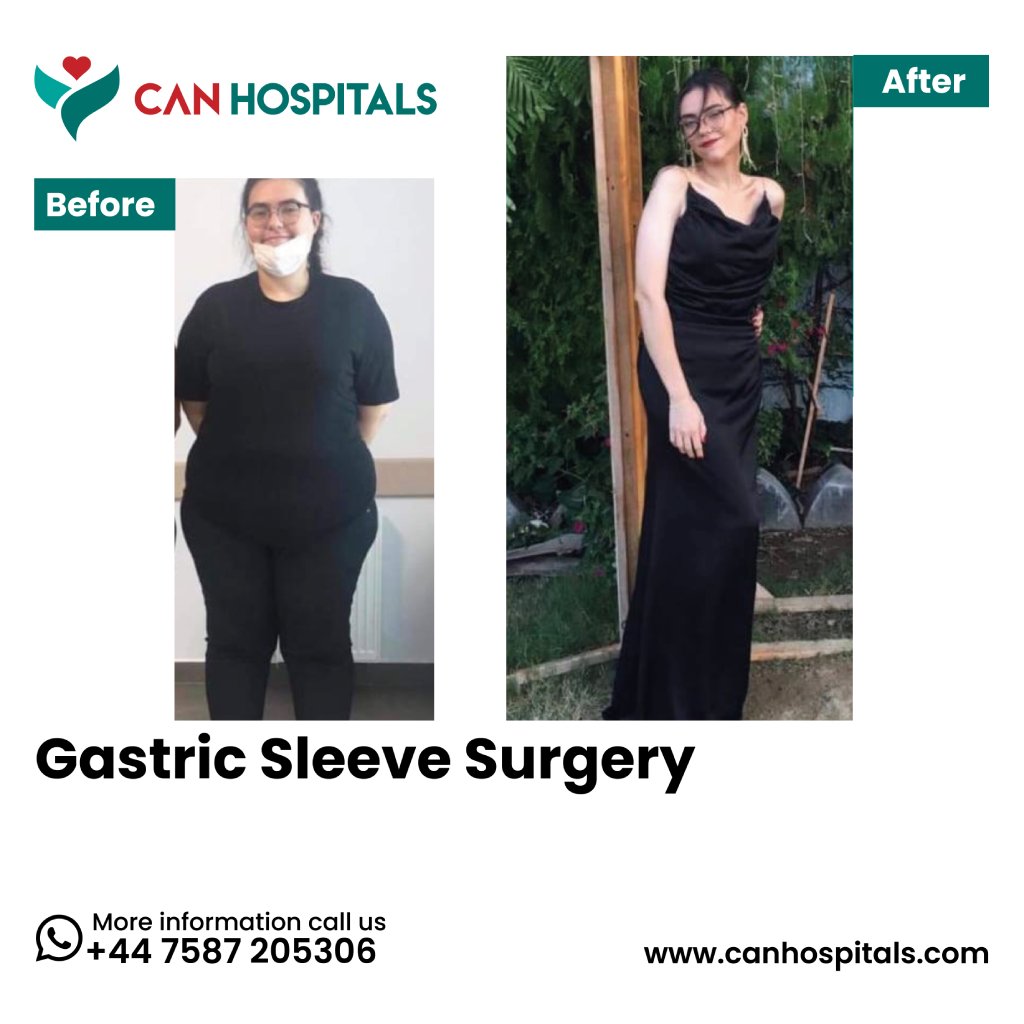

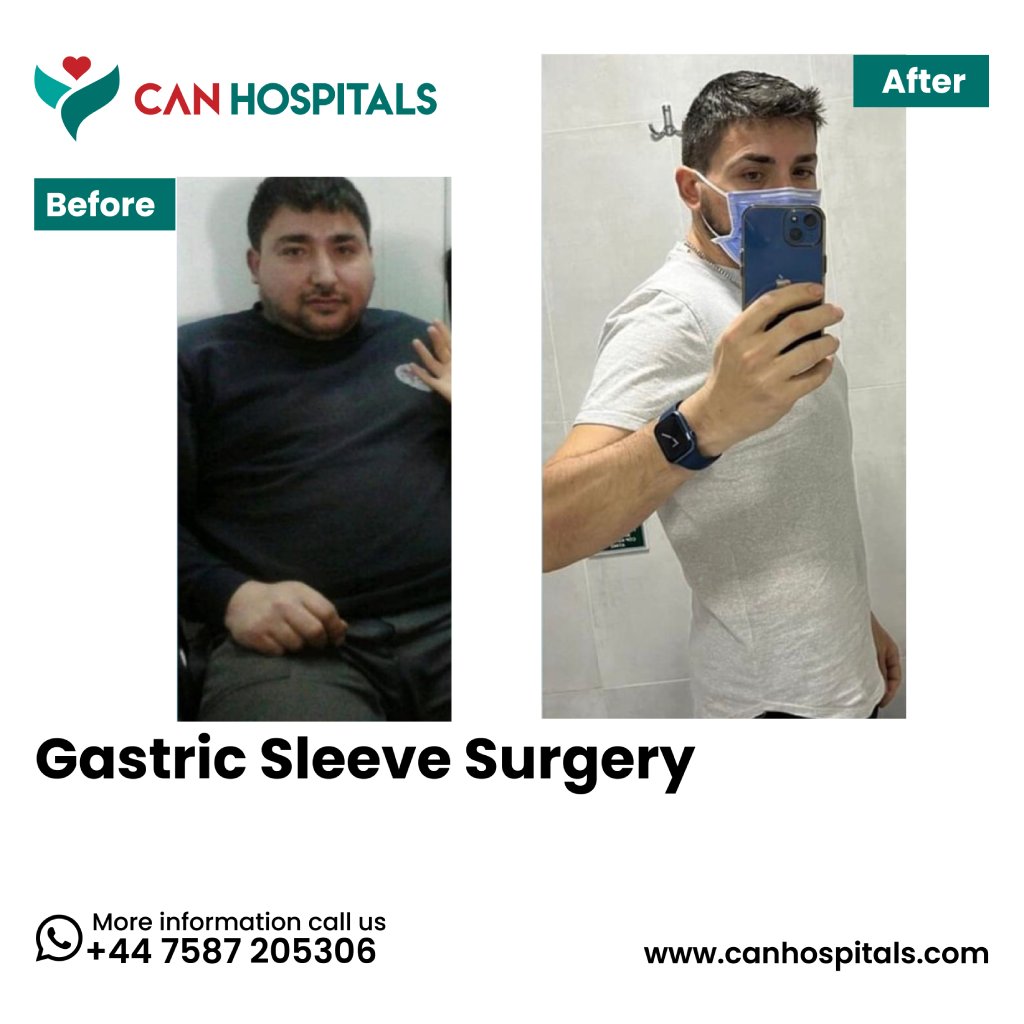
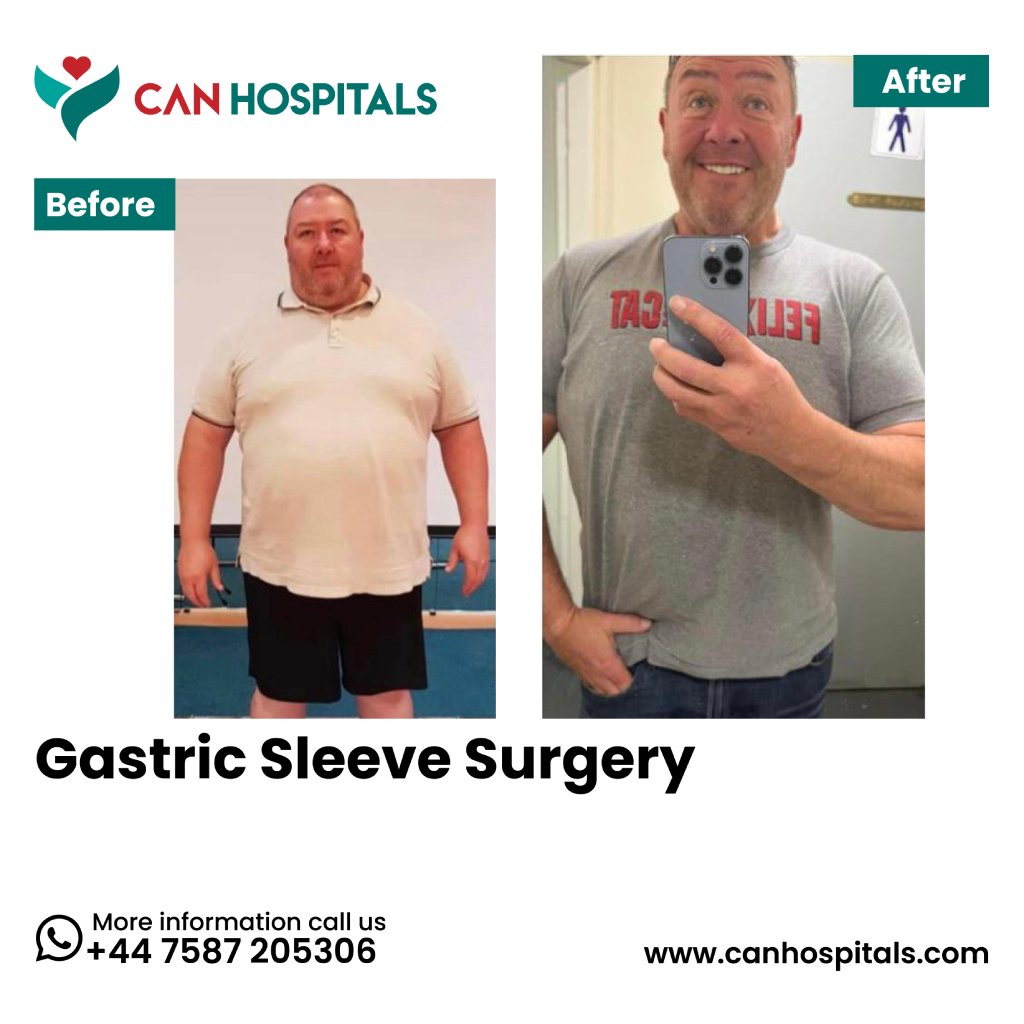
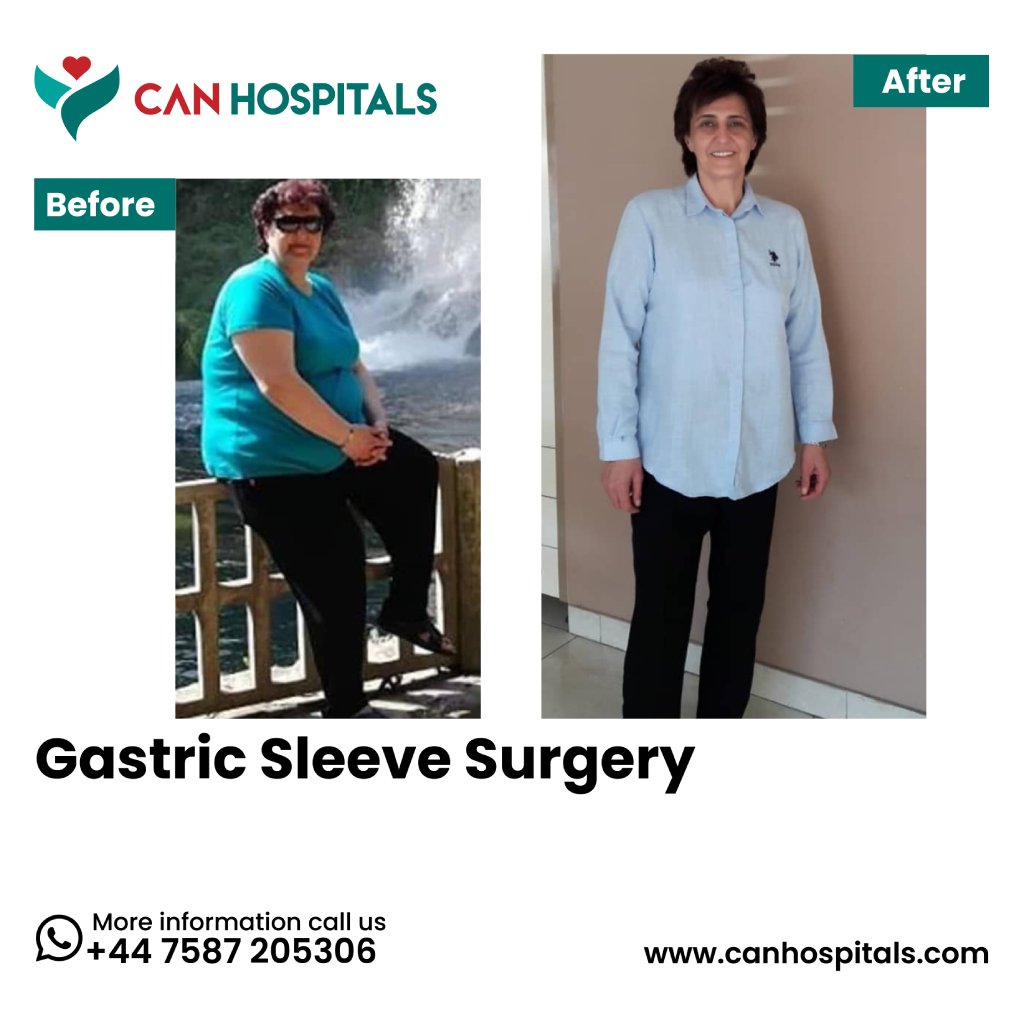
Patience Experience
Nuestros Médicos del Departamento
Чтобы задать общие вопросы о наших больницах Can Hospitals, заполните форму ниже, и сотрудник приемной комиссии свяжется с вами по интересующему вас вопросу.
Obesidad y Cirugía Metabólica











